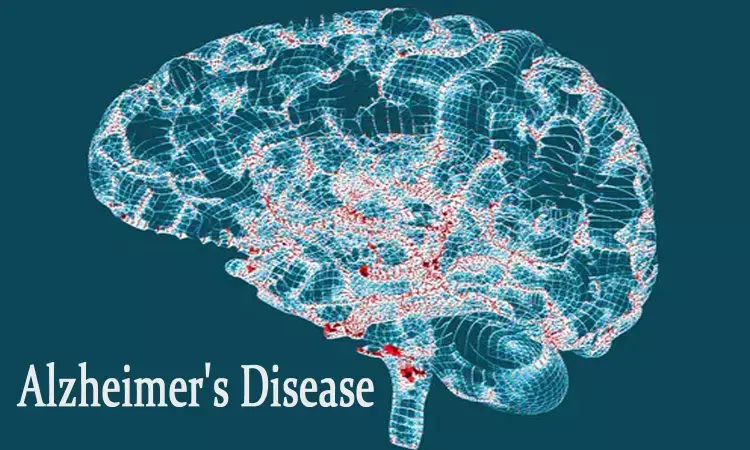- Home
- Medical news & Guidelines
- Anesthesiology
- Cardiology and CTVS
- Critical Care
- Dentistry
- Dermatology
- Diabetes and Endocrinology
- ENT
- Gastroenterology
- Medicine
- Nephrology
- Neurology
- Obstretics-Gynaecology
- Oncology
- Ophthalmology
- Orthopaedics
- Pediatrics-Neonatology
- Psychiatry
- Pulmonology
- Radiology
- Surgery
- Urology
- Laboratory Medicine
- Diet
- Nursing
- Paramedical
- Physiotherapy
- Health news
- Fact Check
- Bone Health Fact Check
- Brain Health Fact Check
- Cancer Related Fact Check
- Child Care Fact Check
- Dental and oral health fact check
- Diabetes and metabolic health fact check
- Diet and Nutrition Fact Check
- Eye and ENT Care Fact Check
- Fitness fact check
- Gut health fact check
- Heart health fact check
- Kidney health fact check
- Medical education fact check
- Men's health fact check
- Respiratory fact check
- Skin and hair care fact check
- Vaccine and Immunization fact check
- Women's health fact check
- AYUSH
- State News
- Andaman and Nicobar Islands
- Andhra Pradesh
- Arunachal Pradesh
- Assam
- Bihar
- Chandigarh
- Chattisgarh
- Dadra and Nagar Haveli
- Daman and Diu
- Delhi
- Goa
- Gujarat
- Haryana
- Himachal Pradesh
- Jammu & Kashmir
- Jharkhand
- Karnataka
- Kerala
- Ladakh
- Lakshadweep
- Madhya Pradesh
- Maharashtra
- Manipur
- Meghalaya
- Mizoram
- Nagaland
- Odisha
- Puducherry
- Punjab
- Rajasthan
- Sikkim
- Tamil Nadu
- Telangana
- Tripura
- Uttar Pradesh
- Uttrakhand
- West Bengal
- Medical Education
- Industry
Masitinib Shows Promise in Alzheimer Disease, Finds Study

Researchers have found out that masitinib in Alzheimer's disease met its primary endpoint in the recent Phase 2B/3 study evaluating oral masitinib in patients with mild and moderate Alzheimer's disease met its predefined primary endpoint.
Masitinib is a new orally administered tyrosine kinase inhibitor that targets mast cells and macrophages, important cells for immunity, through inhibiting a limited number of kinases. Based on its unique mechanism of action, masitinib can be developed in a large number of conditions in oncology, in inflammatory diseases, and in certain diseases of the central nervous system. In oncology due to its immunotherapy effect, masitinib can have an effect on survival, alone or in combination with chemotherapy. Through its activity on mast cells and microglia and consequently the inhibition of the activation of the inflammatory process, masitinib can have an effect on the symptoms associated with some inflammatory and central nervous system diseases and the degeneration of these diseases.
The study was an international, randomized, placebo-controlled, phase 2B/3 study evaluating different doses of masitinib as a treatment of patients with confirmed mild to moderate Alzheimer's disease. This study compared the efficacy and safety of masitinib relative to placebo after 24 weeks of treatment when administered as an add-on therapy to cholinesterase inhibitor (donepezil, rivastigmine, or galantamine) and/or memantine. Two doses of masitinib were tested, masitinib 4.5 mg/kg/day and a titrated dose of masitinib from 4.5 to 6.0 mg/kg/day, with each dose having an independent control arm.
The study revealed the following results-
- Masitinib 4.5 mg/kg/day in a sample of 182 individuals generated a significant treatment effect compared with the control arm (n=176) on the primary endpoint of change from baseline in the Alzheimer's Disease Assessment Scale-Cognitive Subscale (ADAS-Cog), an instrument that measures the effect on cognition and memory (p=0.0003).
- Masitinib 4.5 mg/kg/day generated a significant change from the baseline in Alzheimer's Disease Cooperative Study Activities of Daily Living (ADCS-ADL) score, an instrument that assesses self-care and activities of daily living (p= 0.0381).
- There were significantly fewer patients reaching severe dementia stage (MMSE<10) with masitinib 4.5 mg/kg/day compared with placebo after 24 weeks of treatment (p-value= 0.0446).
Hence, it was concluded that "the safety of masitinib 4.5 mg/kg/day was acceptable and consistent with the known tolerability profile for masitinib."
Dr. Nandita Mohan is a practicing pediatric dentist with more than 5 years of clinical work experience. Along with this, she is equally interested in keeping herself up to date about the latest developments in the field of medicine and dentistry which is the driving force for her to be in association with Medical Dialogues. She also has her name attached with many publications; both national and international. She has pursued her BDS from Rajiv Gandhi University of Health Sciences, Bangalore and later went to enter her dream specialty (MDS) in the Department of Pedodontics and Preventive Dentistry from Pt. B.D. Sharma University of Health Sciences. Through all the years of experience, her core interest in learning something new has never stopped. She can be contacted at editorial@medicaldialogues.in. Contact no. 011-43720751
Dr Kamal Kant Kohli-MBBS, DTCD- a chest specialist with more than 30 years of practice and a flair for writing clinical articles, Dr Kamal Kant Kohli joined Medical Dialogues as a Chief Editor of Medical News. Besides writing articles, as an editor, he proofreads and verifies all the medical content published on Medical Dialogues including those coming from journals, studies,medical conferences,guidelines etc. Email: drkohli@medicaldialogues.in. Contact no. 011-43720751


